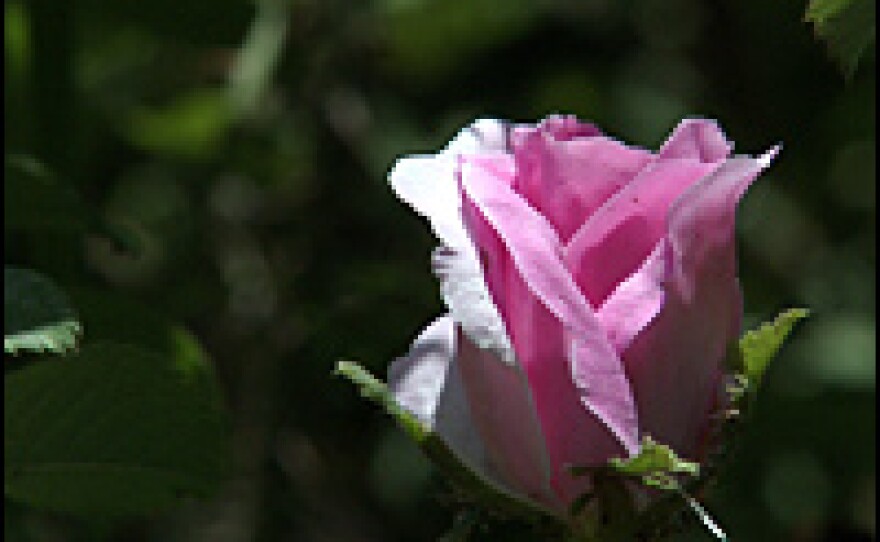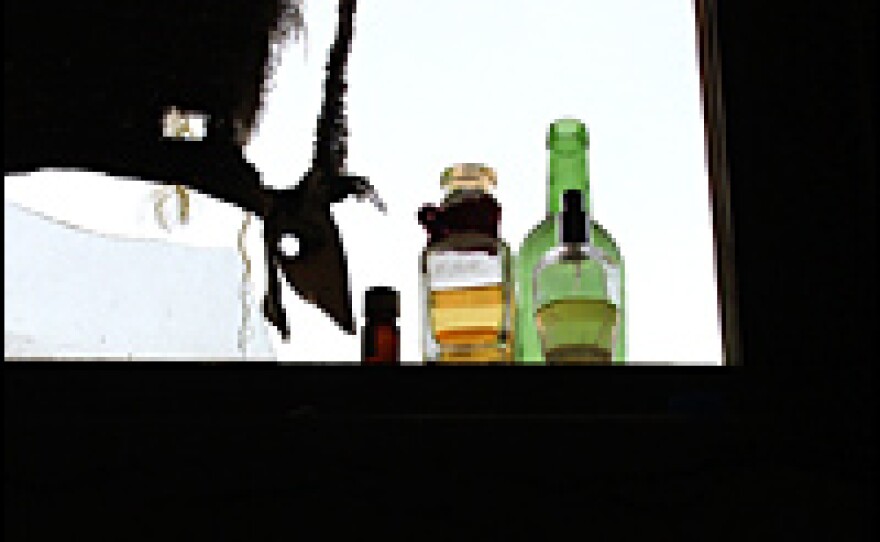


Since the fall of the Taliban in Afghanistan, poppy production has skyrocketed in the country. The Afghan heroin industry is by far the largest in the world.
For the past several years, a group of Afghan and foreign businessmen has been trying to offer an alternative, by urging farmers to grow flowers for perfume instead of for drugs. But it has been a frustrating and costly project.
Shafiq Azizi is a perfume distiller. When he isn't picking flowers in Nimla garden, a green oasis in the dry hills of eastern Afghanistan, he works in a hot, dusty parking lot in the city of Jalalabad. He darts between a network of steel pipes and drums, dumping fragrant ingredients such as cedar wood into a giant metal vat.
By boiling the ingredients, Azizi extracts valuable oils, which can be sold on the international market for thousands of dollars per gallon.
Barnett Rubin, an Afghanistan expert at New York University, says the process is similar in a way to the production of heroin.
"You grow flowers, then you refine it using relatively simple technology into something that has very high value per volume and then export it to the market — only it's completely legal," says Rubin, who is also one of the founders of the Gulestan Company, which employed Azizi for the last three years.
Rubin says he and his partners hoped to offer Afghan farmers an alternative to growing poppies. Instead, they have encountered daunting obstacles.
"After my experience trying to start a legal taxpaying company in Afghanistan, I understand very well why people prefer to go into illegal businesses," he says.
Two years ago, Azizi used $29,000 in U.S. aid money to plant thousands of roses and build a perfume-distilling machine for the villagers living near Nimla garden.
But when Azizi visited last week, he found the distillery untouched and the rose patch abandoned.
Many Afghan farmers are reluctant to switch to a new cash crop because they are accustomed to being paid upfront to grow poppies for opium traders.
Rubin says corrupt and inefficient Afghan government bureaucracy also created big problems for Gulestan.
For instance, he says the company owed a $400 tax.
"We kept trying to pay this tax, and every time we did, the officials in the local treasury department would ask us for bribes," he says.
The company faced a litany of other obstacles. At one point government officials refused to allow Gulestan employees to operate their distillery for weeks, forcing them to miss a crucial flower harvest.
Gulestan's owners now say they plan to liquidate the company. But there is still hope for Afghan perfume. A local entrepreneur named Abdullah Arsallah is determined to resurrect Gulestan as a new company that makes fragrances.
"It's very easy to get into the drug business, but ... that will not get us anywhere," Arsallah says. "It's a cycle that one has to break."
Arsallah says he will move Azizi and his distillery to a nearby village, where a farmer named Haji Ibrahim says he is enthusiastic about the new venture.
Instead of supplying people around the world with poison from poppy and other drugs, Ibrahim says it is his hope that Afghanistan can give them sweet fruits, vegetables and nice smells.
Copyright 2022 NPR. To see more, visit https://www.npr.org. 9(MDAzMjM2NDYzMDEyMzc1Njk5NjAxNzY3OQ001))







